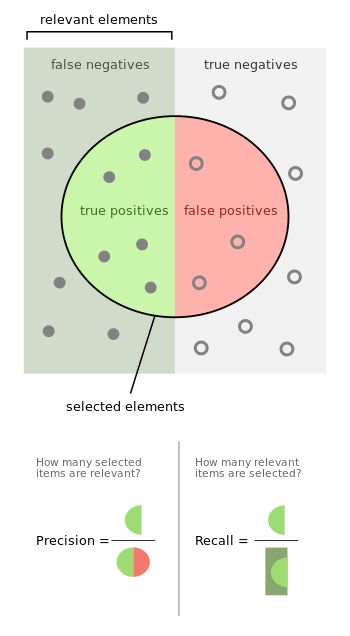I have some trouble understanding the concept of using precision and recall to evaluate a content-based recommender.
Suppose I want to recommend articles to users. A content-based recommender will first get my article reading history, then find articles similar to what I have read based on some clustering result.
Here's a graph about precision and recall:
If I understand correctly, the true positives part is fixed, which is always the number of articles I've read. That means the the false negatives part is 0, thus recall is always 1?

